It has been said that the transition of power is the weakest part of democracy. If developments surrounding Egypt’s recent parliamentary elections are any indication, the same might also be true — at least in some paradoxical sense — for authoritarian governments. Outside analysts generally agree that the country’s Nov. 28 elections were wracked by widespread fraud and poll-rigging, resulting in a nearly across-the-board victory for President Hosni Mubarak’s ruling National Democratic Party (NDP). However, as the nation’s crippled opposition now bands together to form a “shadow parliament,” the extent to which the ruling party will be able to use […]
Diplomacy & Politics Archive
Free Newsletter
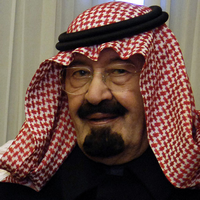
In late-November, a 40-car motorcade drove through New York City toward Presbyterian Hospital, bringing Saudi King Abdullah along with dozens of his accompanying princes and dignitaries to an important medical appointment. The 86-year-old king, whose entourage reportedly took over the hospital’s entire VIP floor and much of the Waldorf-Astoria Hotel, had come to New York for surgery on a slipped disk and a blood clot pressing on nerves in his back, according to palace officials. The medical treatment would keep the king away from his duties for many weeks, and, as with any patient of that age, there was a […]
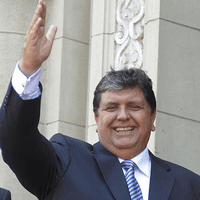
Peru is again on pace to end the year as one of the world’s fastest-growing economies, due in no small measure to its ambitious strategy of economic diversification. In 2010, it finalized four new free-trade agreements (FTAs) — three with Asian partners — and launched the test phase of a joint stock exchange, Mercados Integrados Latinoamericanos (Integrated Latin American Markets, or MILA), with Colombia and Chile. Peru’s global and regional trade diplomacy has resulted in more domestic investment and a larger network of export markets for Peruvian goods. Peru’s open-market policies can also be partially credited with the country’s rapid […]
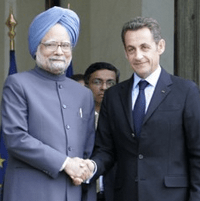
French President Nicolas Sarkozy is the latest head of state to visit India at a time when the latter is looking to award lucrative contracts in energy, infrastructure, security and other areas. As with U.S. President Barack Obama’s visit last month, Sarkozy sought to develop positive atmospherics by making the “right noises” on issues New Delhi holds dear, such as permanent membership on the U.N. Security Council and entry into the Nuclear Suppliers Group as well as terrorism emanating from the Afghanistan-Pakistan region. The visit also saw forward movement on a number of bilateral deals valued at around $20 billion. […]
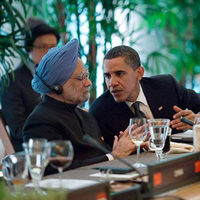
Concern about China’s emerging economic and military capabilities now drives the U.S. strategic debate. The development of anti-ship ballistic missiles (ASBMs) by the PRC has even led some to argue that the balance of power in the Western Pacific has now shifted in China’s direction. At the very least, ASBMs give China another tool with which to threaten U.S. naval predominance in Asia. In response to the perceived growth of Chinese military power, analysts at the Center for New American Security and elsewhere have suggested (.pdf) closer alignment with Japan and India, two of China’s regional rivals. On the surface, […]
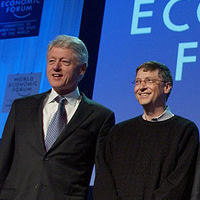
Through their foundations and personal-diplomacy efforts, Bill Gates and Bill Clinton are changing how the international community addresses global health concerns. The Bill & Melinda Gates Foundation is the world’s wealthiest philanthropy, and it has used its wealth to help set the governance agenda for global health. The William J. Clinton Foundation has used the former president’s stature to negotiate agreements between governments and pharmaceutical companies that had previously stymied international trade negotiations for years. The prominence of these two foundations raises a host of issues about the role of private actors in international governance, policy accountability within the international […]
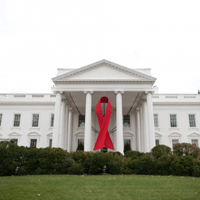
At the closing ceremonies of the International AIDS Conference in Vienna this year, U.S. President Barack Obama pledged to redouble U.S. efforts to fight HIV and AIDS through his Global Health Initiative, notwithstanding hard times in the wake of the global recession. Despite this verbal commitment, many AIDS activists were not satisfied and would later protest, particularly before the midterm U.S. congressional elections, that the U.S. was not spending enough on AIDS overseas. A closer look at the Global Health Initiative budget reveals that these concerns may be justified. While AIDS funding has grown 4 percent from FY2010 to FY2011 […]

Over the past decade, the amount of money flowing into developing countries to address health issues has grown at an incredible rate. According to one authoritative estimate, the total annual value of money and goods donated to global health from all sources, public and private, has risen from less than $8 billion in 1995 to almost $27 billion in 2010 — with most of that increase occurring since 2002. Game-changing new organizations have been created during this period, from radically different kinds of private philanthropies, such as the Bill & Melinda Gates Foundation, which has made more than $13 billion […]
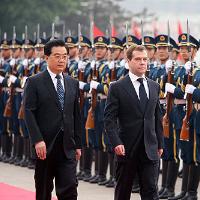
When he joined Russian Prime Minister Vladimir Putin in St. Petersburg on Nov. 23, Chinese Premier Wen Jiabao reassuringly said that, “China will firmly follow the path of peaceful development and support the renaissance of Russia as a great power.” Moscow policymakers, armed with nuclear weapons, probably have little fear of a war with China, but they can rightly be concerned about becoming a raw-material appendage to the growing Chinese economic giant. Since Russia and China have settled their joint border and are not engaged in direct military competition with each other, the focus of the Russian-Chinese relationship in recent […]
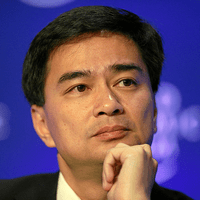
This is the second of a three-part series on Thailand’s slide toward authoritarian rule. The first article discussed the domestic effects of Thailand’s faltering democracy. This second article discusses the regional effects. A third article, to appear next week, will discuss the broader implications for the U.S.-China rivalry in Southeast Asia. The ripple effects of Thailand’s withering democracy are being felt across Southeast Asia, a highly dynamic region that has never fully embraced democracy. On one level, Thailand’s slide towards authoritarianism has deprived the key regional organization, the Association of Southeast Asian Nations (ASEAN), of its most-progressive leader. Until the […]

CANCÚN, Mexico — One thing is certain about the COP 16 climate talks in Cancún, Mexico: The summit was not the disaster of last year’s affair in Copenhagen. Though binding agreements were never on the table, even critical observers such as Global Witness, the World Wildlife Fund (WWF) and Greenpeace expressed measured optimism as the conference came to a close at 4 a.m. Saturday morning. “We hope countries can go back from [Cancún] with momentum to take national action, and with a sense of renewed purpose,” said Tara Rao of WWF. Rao nevertheless cautioned that the final agreement was far […]
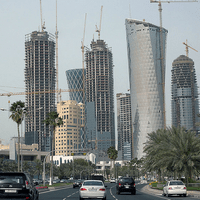
The decision by FIFA, soccer’s world governing body, to award the 2022 World Cup to Qatar was momentous on many levels, but historic on one key score: Never before has a global sporting event of such stature been awarded to a country so clearly stuck in a “bad neighborhood” like the Persian Gulf, where the potential for large-scale regional war between now and 2022 is far from theoretical. FIFA’s decision was bold alright, but it also signals the international community’s growing faith in what Gulf Cooperation Council countries like Qatar have achieved in promoting economic and network connectivity with the […]
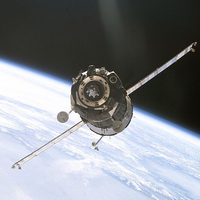
While much has been said about the overall merits of the New START agreement, comparatively little attention has focused on the treaty’s Article 10. This relatively short but telling passage borrows decades-old language reinforcing both the United States’ and Russia’s mutual obligations regarding “national technical means” (NTM) of treaty monitoring and verification — diplomatic speak for spy satellites. Article 10 obligates both parties to use NTM in accordance with the principles of international law, to refrain from concealment measures intended to impede NTM verification of compliance, and, most importantly, not to interfere with each other’s NTM. The nod to NTM […]
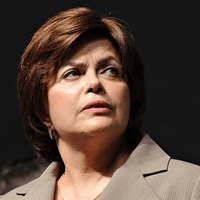
Dilma Rousseff won Brazil’s recent presidential elections handily, benefitting from both the enthusiastic backing of the enormously popular incumbent, Luiz Inácio Lula da Silva, and from the mobilization of historically disadvantaged voters excited by identification with a woman candidate. Despite some nasty exchanges with her second-round opponent, José Serra of the Social Democratic Party, the campaign was characterized by the lack of a clear programmatic separation between the two candidates. Although markets moderately preferred Serra, a casual observer might be excused for failing to see much daylight between the two. The fact that the two leading candidates for office differed […]
U.S. Secretary of State Hillary Rodham Clinton speaks at the Brookings Institution’s Saban Center for Middle East Policy Seventh Annual Forum in Washington, D.C., on December 10, 2010.
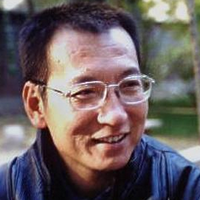
On the stage in Oslo City Hall today, there will be an empty chair for the winner of the Nobel Peace Prize, Liu Xiaobo. The United States government, which will be represented at the ceremony by its ambassador to Norway, Barry White, criticized China’s refusal to release the imprisoned Liu in order to attend the ceremony. The House of Representatives also passed a resolution calling for the dissident to be freed, while the Obama administration made its position clear in no uncertain terms: We think the Nobel committee has made a strong statement, and we will associate ourselves with that […]
